第78章 Chapter Fourteen(1)
To begin with, he did not know how he could pay Monsieur Homais for all the physic supplied by him, and though, as a medical man, he was not obliged to pay for it, he nevertheless blushed a little at such an obligation. Then the expenses of the household, now that the servant was mistress, became terrible. Bills rained in upon the house; the tradesmen grumbled; Monsieur Lheureux especially harassed him. In fact, at the height of Emma's illness, the latter, taking advantage of the circumstances to make his bill larger, had hurriedly brought the cloak, the travelling-bag, two trunks instead of one, and a number of other things. It was very well for Charles to say he did not want them.
The tradesman answered arrogantly that these articles had been ordered, and that he would not take them back; besides, it would vex madame in her convalescence; the doctor had better think it over; in short, he was resolved to sue him rather than give up his rights and take back his goods. Charles subsequently ordered them to be sent back to the shop. Felicite forgot; he had other things to attend to; then thought no more about them. Monsieur Lheureux returned to the charge, and, by turns threatening and whining, so managed that Bovary ended by signing a bill at six months. But hardly had he signed this bill than a bold idea occurred to him: it was to borrow a thousand francs from Lheureux. So, with an embarrassed air, he asked if it were possible to get them, adding that it would be for a year, at any interest he wished. Lheureux ran off to his shop, brought back the money, and dictated another bill, by which Bovary undertook to pay to his order on the 1st of September next the sum of one thousand and seventy francs, which, with the hundred and eighty already agreed to, made just twelve hundred and fifty, thus lending at six per cent in addition to one-fourth for commission: and the things bringing him in a good third at the least, this ought in twelve months to give him a profit of a hundred and thirty francs. He hoped that the business would not stop there; that the bills would not be paid; that they would be renewed; and that his poor little money, having thriven at the doctor's as at a hospital, would come back to him one day considerably more plump, and fat enough to burst his bag.
Everything, moreover, succeeded with him. He was adjudicator for a supply of cider to the hospital at Neufchatel; Monsieur Guillaumin promised him some shares in the turf-pits of Gaumesnil, and he dreamt of establishing a new diligence service between Arcueil and Rouen, which no doubt would not be long in ruining the ramshackle van of the "Lion d'Or," and that, travelling faster, at a cheaper rate, and carrying more luggage, would thus put into his hands the whole commerce of Yonville.
Charles several times asked himself by what means he should next year be able to pay back so much money. He reflected, imagined expedients, such as applying to his father or selling something.
But his father would be deaf, and he--he had nothing to sell.
Then he foresaw such worries that he quickly dismissed so disagreeable a subject of meditation from his mind. He reproached himself with forgetting Emma, as if, all his thoughts belonging to this woman, it was robbing her of something not to be constantly thinking of her.
The winter was severe, Madame Bovary's convalescence slow. When it was fine they wheeled her arm-chair to the window that overlooked the square, for she now had an antipathy to the garden, and the blinds on that side were always down. She wished the horse to be sold; what she formerly liked now displeased her.
All her ideas seemed to be limited to the care of herself. She stayed in bed taking little meals, rang for the servant to inquire about her gruel or to chat with her. The snow on the market-roof threw a white, still light into the room; then the rain began to fall; and Emma waited daily with a mind full of eagerness for the inevitable return of some trifling events which nevertheless had no relation to her. The most important was the arrival of the "Hirondelle" in the evening. Then the landlady shouted out, and other voices answered, while Hippolyte's lantern, as he fetched the boxes from the boot, was like a star in the darkness. At mid-day Charles came in; then he went out again; next she took some beef-tea, and towards five o'clock, as the day drew in, the children coming back from school, dragging their wooden shoes along the pavement, knocked the clapper of the shutters with their rulers one after the other.
It was at this hour that Monsieur Bournisien came to see her. He inquired after her health, gave her news, exhorted her to religion, in a coaxing little prattle that was not without its charm. The mere thought of his cassock comforted her.